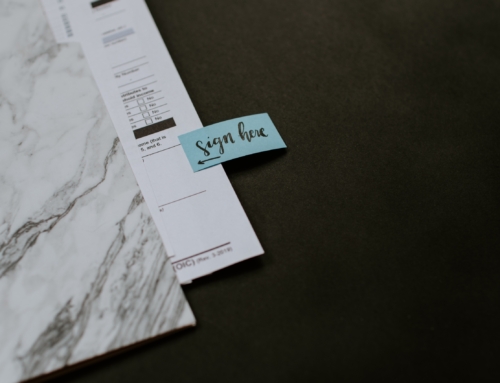The advancement of technology over the last five to ten years has enticed more people to forsake their longer morning commutes to the office and replace them with a shorter walk from their bed to the next room. I’ve discovered that working from home isn’t what I imagined it would be. It takes more focus, careful planning, and set expectations to more effectively and efficiently be able to work from the comfort of home, at least for me anyway. In this short article, my goal is to provide some tips and tricks to others that become easily distracted while taking advantage of the opportunity to get work done from the comfort of their home on either a temporary or permanent basis.
Tip #1: Designate an area as a home office.
This obviously sounds simplistically basic. However, my point is that wherever you designate in your home to be your office, let it only be your office. For people who can become distracted easily, using your living room couch isn’t the greatest idea. This is due to how easy it would be to flip on the TV and kick back for a “10-minute brain break” that stretches into a three-hour binge-watching session of The Office. Your designated room or zone in your home should be one that you only enter to work and is limited on the access to things that aren’t normally found in your actual work’s office.
On that note, make sure things that are normally in your actual work’s office can be found in your home office. A desk with enough space, computer equipment that is reliable, bookshelves to hold your books or more important knick-knacks, and of course, an office chair worthy enough to be sat in for hours on end. My suggestion would be to invest a reasonable amount of money into your home office depending upon the amount of time you plan on using it. Using better equipment can result in you being more included to stay working, which in turn results in being more productive.
Tip #2: Block out other things going on in the house.
If you aren’t living on your own, then you are likely to have things going on in other areas of the home that could break your concentration or vie for your attention. This is why I suggest purchasing a pair of noise-canceling headphones that can be used to listen to music, phone calls, and if nothing else, to block out sounds from other parts of the house. It is also imperative that you set expectations on when you can and cannot be interrupted. Creating a stoplight system for family or roommates help convey to them: a green light when you are open for interruptions, a yellow light when you want them to check first, and when you are not to be disturbed, red light. For those that can be easily distracted while working at home, developing the mindset of “pretending you’re at work and not at home” will help keep you focused on the right work.
Tip #3: Schedule your day.
Many enjoy working from home because of the flexibility it provides. However, too much flexibility can result in poor time or project management. From my experience, I recommend scheduling what things need to get done today and estimating how much time each project or task will take. Starting this habit will help you make sure that things are getting taken care of now rather than being pushed off to later. It goes without saying, but I’m saying it anyway since I’ve failed in this before, but make sure you also have all the materials you need for the projects that you plan to be working on. Hopefully, by scheduling out your day or week, you will be aware if there are documents, forms, or other things you may need that you can request ahead of time. Nothing is worse for concentration and morale than getting knee-deep into your work just to realize you have to stop because you left the documents you needed at work.
Lastly, make sure you schedule breaks or distractions into your day. This is a good idea for at least two reasons. First, it is important to have a few minutes designated as a brain break where you can relax and recharge. Going for a walk, surfing social media, or for me personally, playing video games can clear your mind of problems you may have been working on to make room for new ones. Secondly, having a scheduled break helps you to resist taking unplanned adventures to other parts of the home. The temptation to make multiple trips to the fridge or pantry seems to lessen when I know that I have allowed myself a portion of time to do something that’s not work-related.
Conclusion:
These are just a few tips that I’ve found to be useful in my own life on days I decide to work from home. Obviously, there are plenty more, and if you are a person that plans on working exclusively from home, I’d encourage you to continue researching. In the end, you want to make sure whether you are self-employed or working for someone else, that the time each day you are “at work” is productive and value-adding!
If you have questions or comments on working from home, Abacus CPAs is here to help! Contact us today at 417-823-7171 or visit our website abacuscpas.com!
John Taylor, CPA










